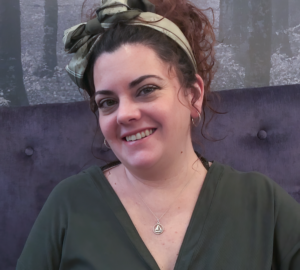Ecological Balance From Sea to Shining Sea
Jamaica Plain Update
The rats are hungry in Hyde Square, according to Alaina Gonzalez-White, WISDOM Good Works’ consultant on the East Coast.
That’s good news, because it means the rodents that have disrupted life in this tight-knit neighborhood are eager to consume the organic pellets containing our fertility-control technology.
Hyde Square is a small enclave within the Jamaica Plain neighborhood in Boston. Our pilot program there, which began earlier this summer, is unique in the portfolio of WISDOM Good Works projects because it’s focused on an open residential area. That’s substantially different from our studies in animal enclosures at shelters or zoos, or in the isolated farms of Isabela Island on the Galapagos archipelago.
“The main question we are trying to answer in Boston is can this technology be used in a residential setting,” said Alaina. “We think yes, and we are out to prove it.”
More than 30 households within a two-block area have agreed to be part of the study and each week, Alaina documents the consumption of the pellets placed in feeders designed to allow access by rats, but not other local wildlife.
That local wildlife is surprisingly diverse, according to Alaina.

Alaina Gonzalez-Whilte — Director of Operations
“In my short time here, I’ve crossed paths with rats, squirrels, birds, bunnies, snakes, raccoons, and wild turkeys,” she said. “The squirrel is my new sworn enemy; they’re the ones most likely to get into the feeders. Although if I had known that a 30-pound turkey was going to follow me around while I worked, I might have had second thoughts about taking this job.”
Alaina, a longtime believer in WISDOM’s mission, has an extensive background in community organizing, which made her the perfect candidate to build community support for this project.
A large part of her job involves providing information on how the fertility-control technology works by interrupting reproduction in both male and female rodents, and why it is a humane, safe, and effective method of combating rodent overpopulation compared to poisons that would typically be used.
Numerous entities, from the City of Boston to financial supporters like Open Philanthropy, have expressed interest in the results from Hyde Square and the potential of this technology to revolutionize how we as a society deal with animal overpopulation.
Alaina is also embarking on a new project in Boston – using our fertility-control technology in community gardens. One community garden has already started using the specialty feeders on its plot of land, and two more have expressed interest in our product.
Meanwhile, as results are gathered from Hyde Park, Alaina plans to hold a community forum to discuss the results and how to sustain the program after the one-year pilot is complete.
AB1322 Passes Legislature
The California Ecosystems Protection Act of 2023 (AB1322) is one step away from becoming state law.
The bill, which would expand an existing moratorium on second-generation anticoagulant rodenticides to include a first-generation anticoagulant rodenticide, diphacinone, was “enrolled” on Tuesday.

That means it was passed in its final amended form by both houses of the California Legislature and has now headed to Gov. Gavin Newsom for his consideration. The governor has 12 days to either sign, approve without signing, or veto the bill.
Literally hundreds of bills are showing up on the governor’s desk right now as the legislature ends its session. You can email your support for AB1322 to the Governor using this platform. Just select “An Active Bill” in the drop down menu and then pick AB1322.
We are almost there! Many thanks to California Assemblymember Laura Friedman, who introduced this important bill, as well as Raptors Are The Solution and the Center for Biological Diversity, whose position papers and expertise helped craft the legislation.


